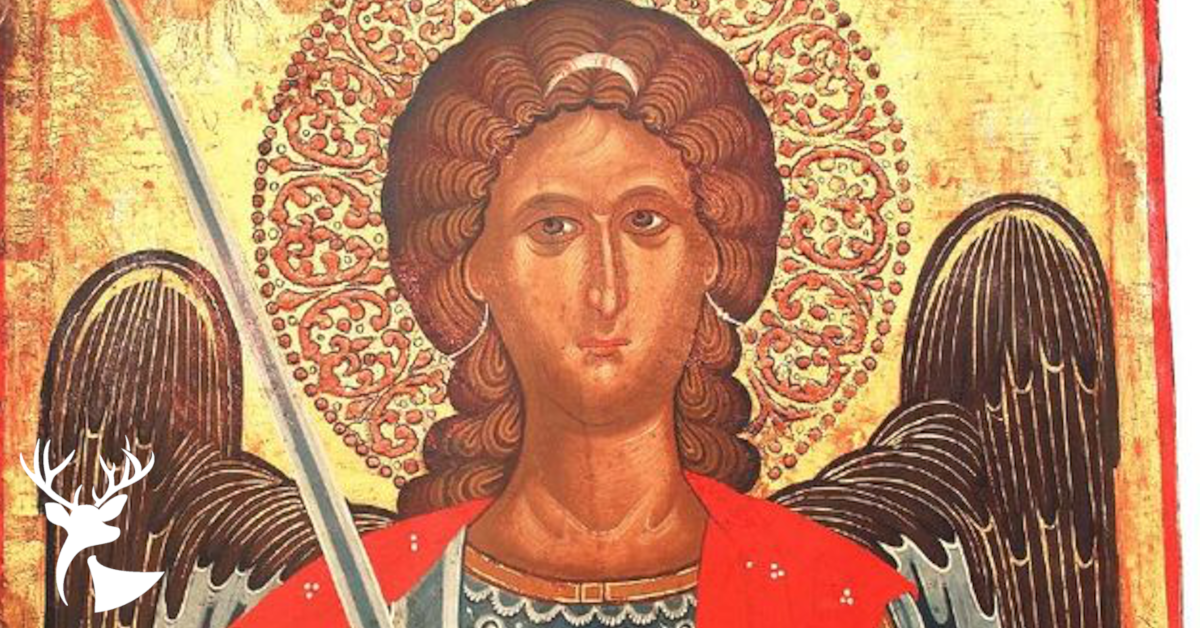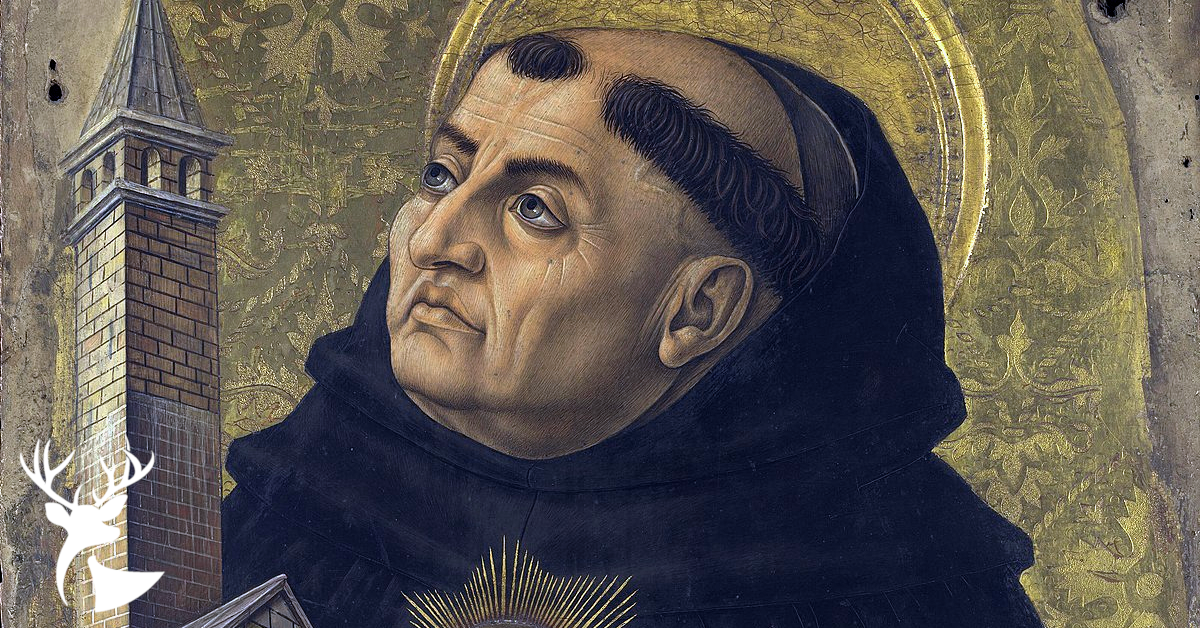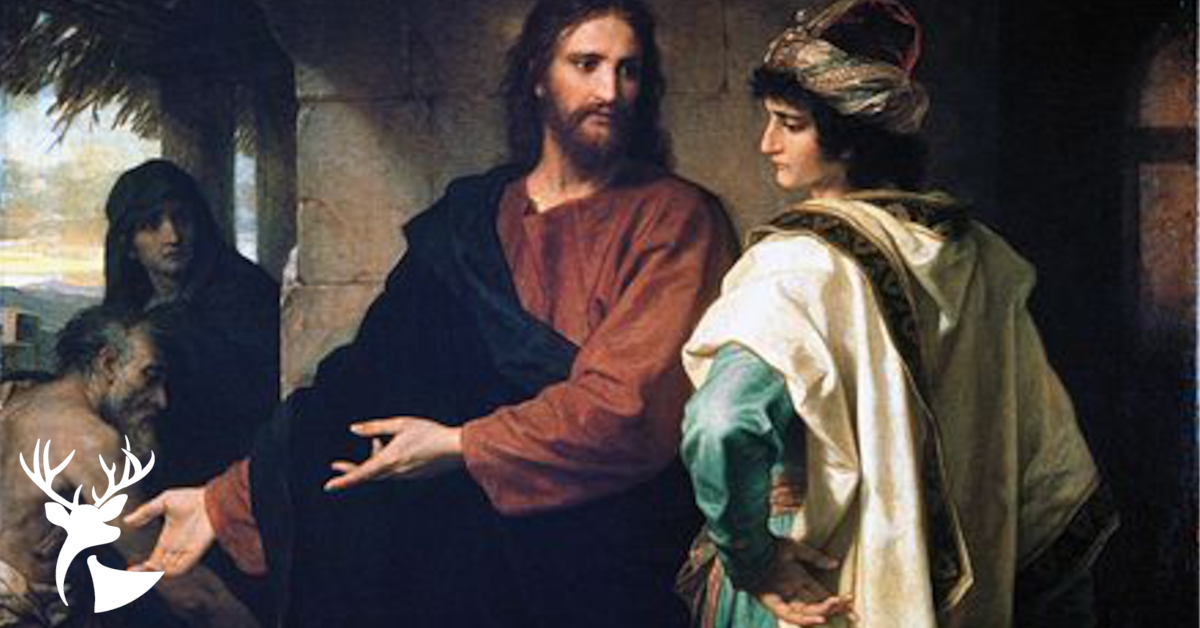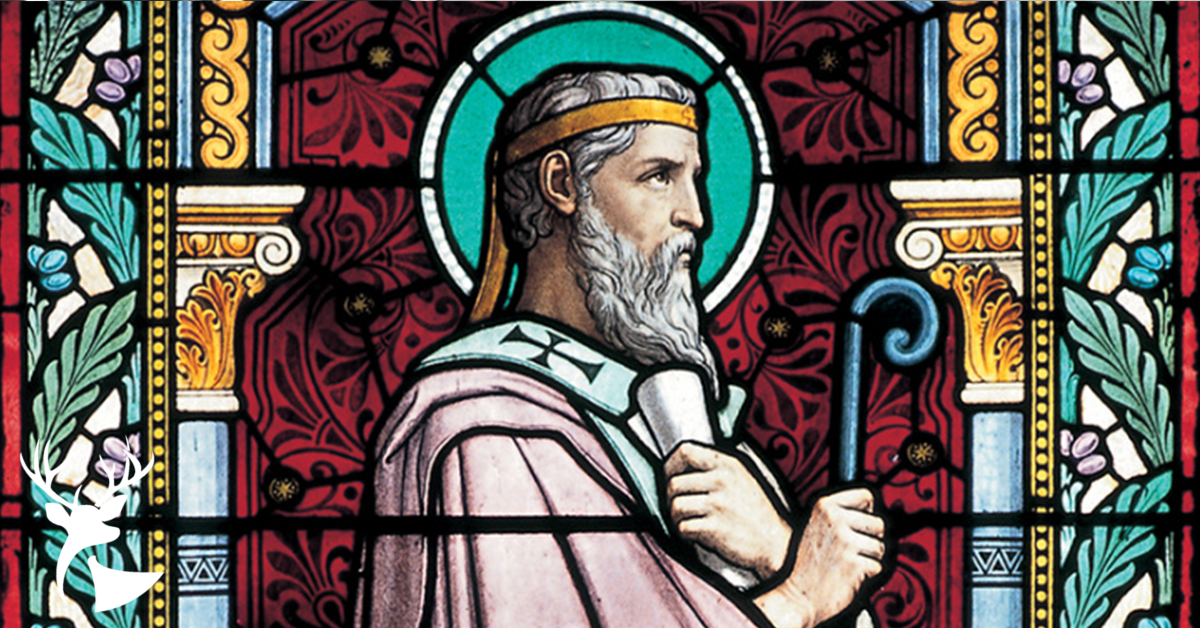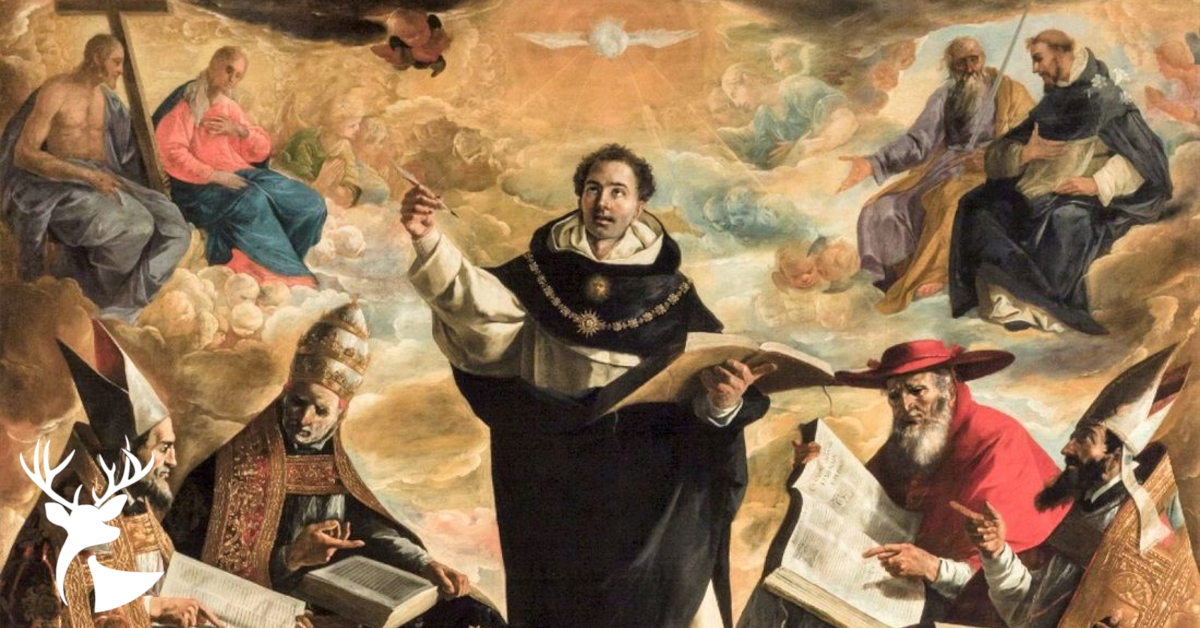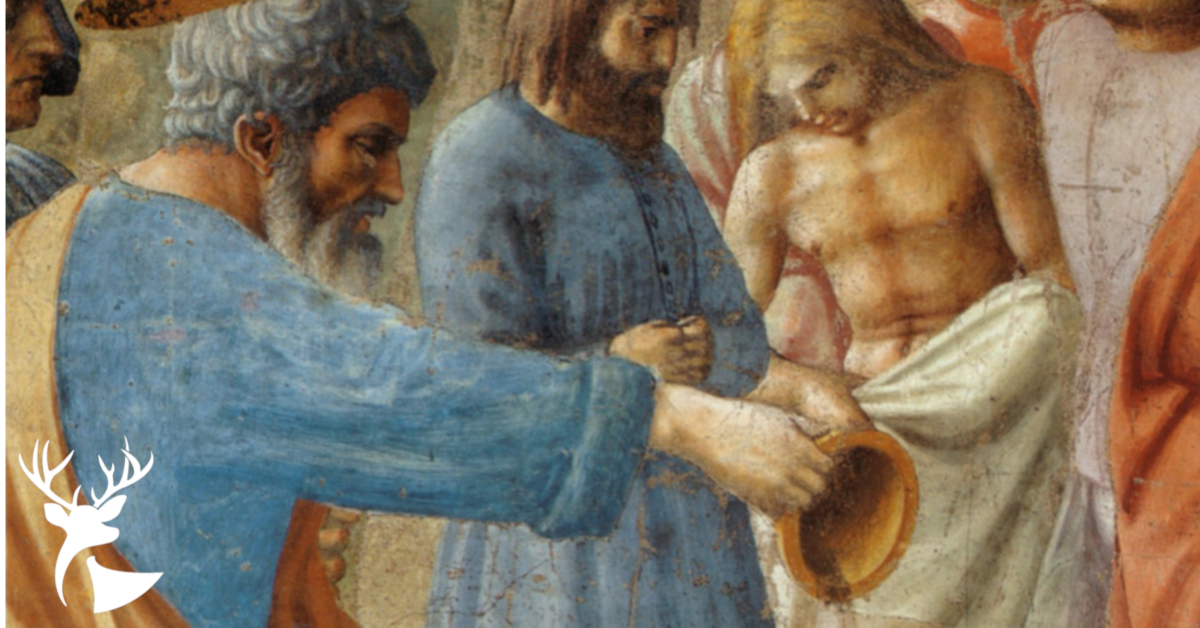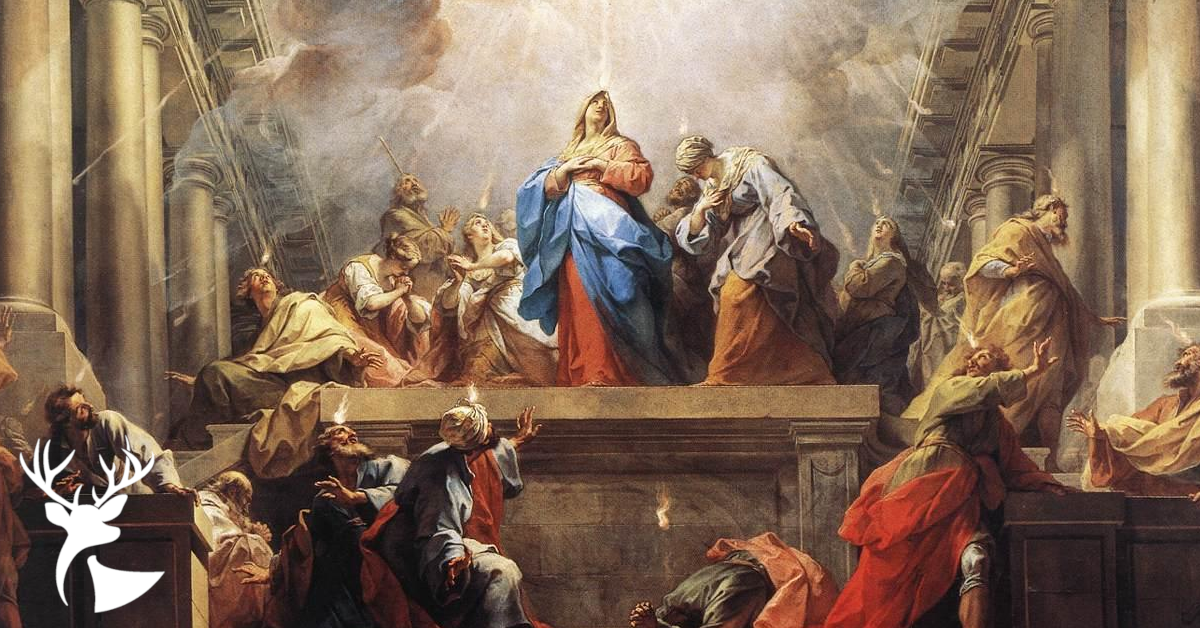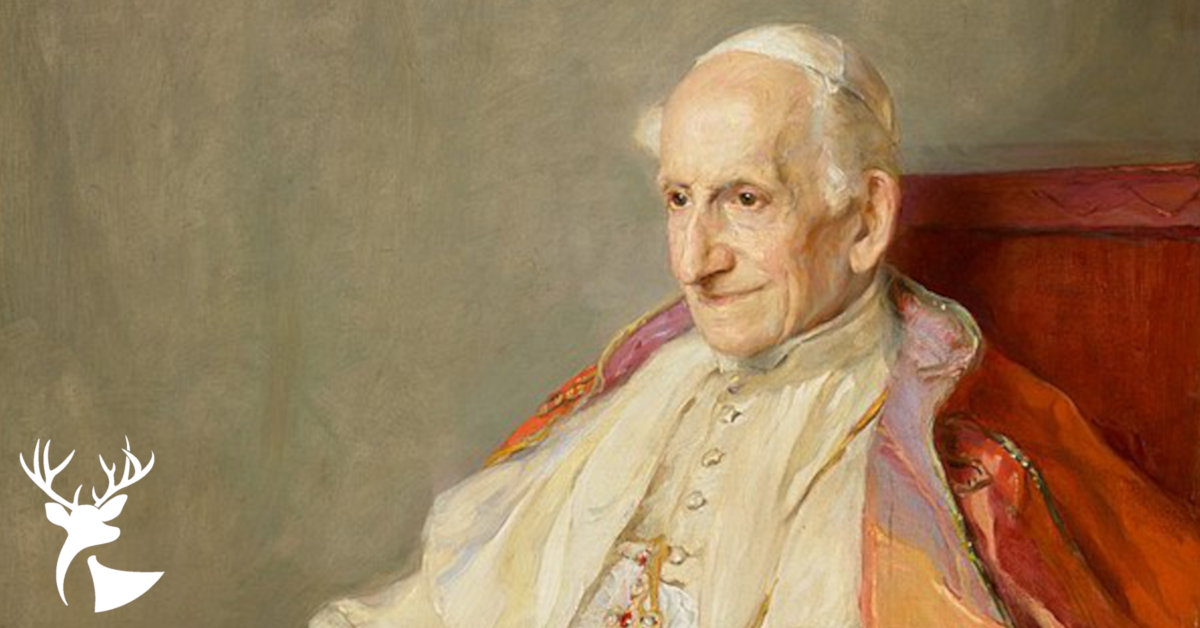Stay Connected!
“Before the words of Christ, that which is offered is called bread. When the words of Christ have been uttered, it is no longer called 'bread,' but 'body.' Why, then, in the Lord’s Prayer, [which follows the prayers of Consecration in the Mass], does the priest say, 'our bread'? He calls it bread indeed, but he calls it epi-ousion—'super-substantial.' It is not the kind of bread which passes into the body, but that 'Bread of eternal Life' (Jn. 4:48-50) which supports the substance of our soul…. What the Latin calls 'daily,' the Greek calls both 'daily' and 'supersubstantial' by one expression. If this is indeed daily bread, then why do you take it only once a year? Take daily what profits you daily! Live your lives such that you may deserve to receive it daily! Whoever does not deserve to receive daily does not deserve to receive once a year. Be as holy Job, who offered daily sacrifice for his sons, in case they had sinned in heart or word. Do you not hear that 'as often as sacrifice is offered, the Lord’s death, the Lord’s resurrection, the Lord’s ascension and the remission of sins is signified'—do you hear these words [of the Mass], and choose not to take this Bread of Life daily? He who has a wound needs medicine; our wound is sin, and the medicine is this heavenly and venerable Sacrament.”
—St. Ambrose of Milan, Treatise on the Sacraments, V.iv.24–25
Of St. Ambrose’s many written works, his On the Mysteries and Treatise on the Sacraments are unique in that they are, principally, catechetical lectures intended for those who are converting to Christianity and seeking baptism. While the practice of bishops personally offering catechetical instruction to new converts may seem unusual to us today, it was a common occurrence in the early Church; St. Cyril, bishop of Jerusalem and also a revered Doctor of the Church, stands out as another example of this ancient practice.
Rather than making for dry reading, there is a great poeticism and tenderness with which Ambrose approaches his pupils in these catechetical lectures. Ambrose realizes that he is not simply imparting information, but drawing people into the very mystery of Christ Himself. Thus, Ambrose’s teaching in these works is mystagogical: he does not seek to teach mere “facts” about Christ and His Church (though his works do accomplish this)—rather, he desires to impart something of his own zeal and love of the Christian faith to those he is instructing.
Nowhere is this more apparent than in Ambrose’s teaching on the Eucharist. After explaining the manifold significance of baptismal washing, together with the anointing of Confirmation, Ambrose seeks to invite his flock into the very heart of the Church’s worship by explaining the meaning of the Mass and the Eucharistic sacrifice. While meditating upon the Lord’s Prayer, he answers a question that, no doubt, many a Christian has pondered: Why is it that, during the Mass, we still refer to the Eucharist as “bread” in the prayers of the Church? If we truly believe that the bread has already been miraculously transformed on the altar, why do we not say “give us this day the Body of Christ” during the Lord’s Prayer?
Ambrose explains that the Greek word epiousion means two things. First and foremost, it means “super-substantial”—that is, it is “super-natural” or “beyond all substance.” By referring to the Eucharist as “super-substantial bread,” Ambrose argues, we do not deny that the Eucharist is the true Body of Christ; in fact, by asking the Lord for super-substantial bread, we explicitly affirm our faith in the Eucharist as we ask not for “the kind of bread which passes into the body, but that ‘Bread of eternal Life’ which supports the substance of our soul.”
The second meaning of the word epiousion, as Ambrose explains, is “daily.” However, this meaning is not literal, but rather symbolic: it refers to the expression used by Greek Christians to refer to “the coming day” of Christ. And so the Church, in praying the Lord’s Prayer, does not ask for mere bread, but for super-substantial, life-giving bread; and She asks that God give this bread to Her daily.
St. Ambrose then, after meditating upon this deep truth, challenges his hearers and exhorts them to a form of Eucharistic devotion which should not be unfamiliar to us: “If this is indeed daily bread, then why do you take it only once a year? Take daily what profits you daily! Live your lives such that you may deserve to receive it daily!” Here, Ambrose recommends not only taking the Eucharist daily, but also living well so that we are free to receive it daily. Though the Church maintains that Catholics should (at minimum) receive the Eucharist once a year, Ambrose warns: “Whoever does not deserve to receive daily does not deserve to receive once a year.”
Such a claim, if it seems harsh, ought to be heavily considered: If we are unwilling to receive the Eucharist daily, why is this the case? Is it because we have legitimate duties and circumstances that would make daily Mass infeasible for us, or is it because we are secretly unwilling to heed Ambrose’s admonition to “live your lives such that you may deserve to receive it daily”?
Ambrose concludes this meditation by considering the example of Job, who “offered daily sacrifice for his sons, in case they had sinned in heart or word.” The Catechism of the Catholic Church (paras. 1362–1372; 1382–1395) reminds us that the Eucharist is truly a sacrifice—and as a sacrifice, the reception of the Eucharist unites us with Christ and forgives us of our venial sins. Thus, this daily and super-substantial Bread is, like the sacrifice of Job, able to forgive us of those small sins and imperfections which we may accrue throughout our day. Because of this, Ambrose compares the Eucharist to a form of medicine which we need daily: “He who has a wound needs medicine; our wound is sin, and the medicine is this heavenly and venerable Sacrament.”This daily medicine for our souls can then heal and preserve us from all forms of sin—especially grave and mortal sins, which must be taken to the Sacrament of Confession.
This is but a small example of the deep Eucharistic piety that can be found in St. Ambrose’s On the Mysteries and Treatise on the Sacraments. These texts are wonderfully accessible meditations on the worship of the Church, and would make wonderful spiritual reading for Lent, an Adoration hour, or those looking for a glimpse at the unity of the Church’s worship across the centuries. During this National Eucharistic Revival, may God grant that we all come to as deep a love and reverence for the Blessed Sacrament as St. Ambrose so dearly wished to impart to his own spiritual flock.
St. Ambrose of Milan, pray for us!
More Reading

Eli Stone has served as a Research and Administrative Assistant for the Alcuin Institute, and presently works with the University of Tulsa.


